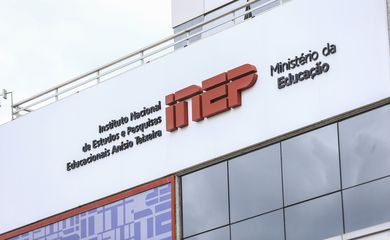MEC launches panel to monitor the implementation of the new high school

Seven states still need to approve the new high school curriculum framework and two states need this document to be ratified. These are necessary steps for the new secondary education to actually reach public and private schools across the country in 2022, as provided for in the schedule established by the Ministry of Education (MEC). The data are from the Monitoring Panel for New Secondary Education launched today (16) by the MEC in an online event. The platform, developed in partnership with the Federal University of Alagoas, brings data updated daily on the implementation of the new high school.

According to the panel, all states have already developed their respective curriculum references, documents needed to guide the development of new curricula that will be applied in classrooms. In Rondônia, Acre, Maranhão, Ceará, Rio Grande do Norte, Alagoas and Bahia, the documents are awaiting approval by the State Education Councils. In Rio de Janeiro and Tocantins, the references were approved by the councils and are now awaiting approval by the governments. In the other 17 states and in the Federal District, the references were approved and ratified.
“The new secondary education is the result of a long debate, an extremely important debate in Brazilian education that begins at the beginning of the 21st century. high school and what young people expected. A total lack of attractiveness”, says the president of the National Council of Education (CNE), Maria Helena Guimarães de Castro, who participated in the launch of the National Webinar for Monitoring New High Schools.
It was with the objective of making the stage more attractive and avoiding school dropout that the new high school was approved in 2017, in Law 13.415/2017 . With the new model, part of the classes will be common to all students in the country, directed by the Common National Curriculum Base (BNCC). In the other part of the training, the students themselves will be able to choose an itinerary to deepen their learning. They may choose to emphasize, for example, the areas of languages, mathematics, natural sciences, humanities or technical education. The offer of itineraries will also depend on the supply capacity of the teaching networks and schools. This is indicated in the state curriculum references.
The schedule defined this year by the MEC establishes that the new secondary education will begin to be implemented in 2022, progressively, starting with the 1st year of secondary education. In 2023, the implementation continues, with the 1st and 2nd years and, in 2024, the implementation cycle ends, with three years of secondary education.
The online Panel is expected to assist in monitoring the implementation of the model in the country. “[It is possible] to choose the information at the level of Brazil or select the region and states to visualize the data. You can screen how the implementation process is going, see an overview of the service provided to the target audience”, explains the general coordinator of High School at the MEC, Fernando Wirthmann.
Changes in Enem
In the webinar, the secretary of Basic Education of the MEC, Mauro Luiz Rabelo, detailed the actions of the folder for the implementation of the new secondary education. According to him, adding up all the actions, so far, R$ 2.5 billion were transferred to the states and schools.
Another change under discussion is the adequacy of national assessments to what will be taught in the new secondary education. Both the National Assessment System for Basic Education (Saeb) and the National Secondary Education Examination (Enem) will have to be modified.
According to Rabelo, the Enem should have two parts, one aimed at evaluating the knowledge acquired in the part common to all students in the country, defined by the BNCC, and the other which should assess the training itineraries. "Currently, the big question is how to create a second stage of testing that includes the evaluation of training itineraries, given the diversity of possibilities that we have in implementation", says the secretary. The new test model should start to take effect only after the full implementation of the new high school, in 2024.
The webinar, which started this Thursday, continues tomorrow (17) and can be followed by MEC's YouTube channel .
Text translated using artificial intelligence.




